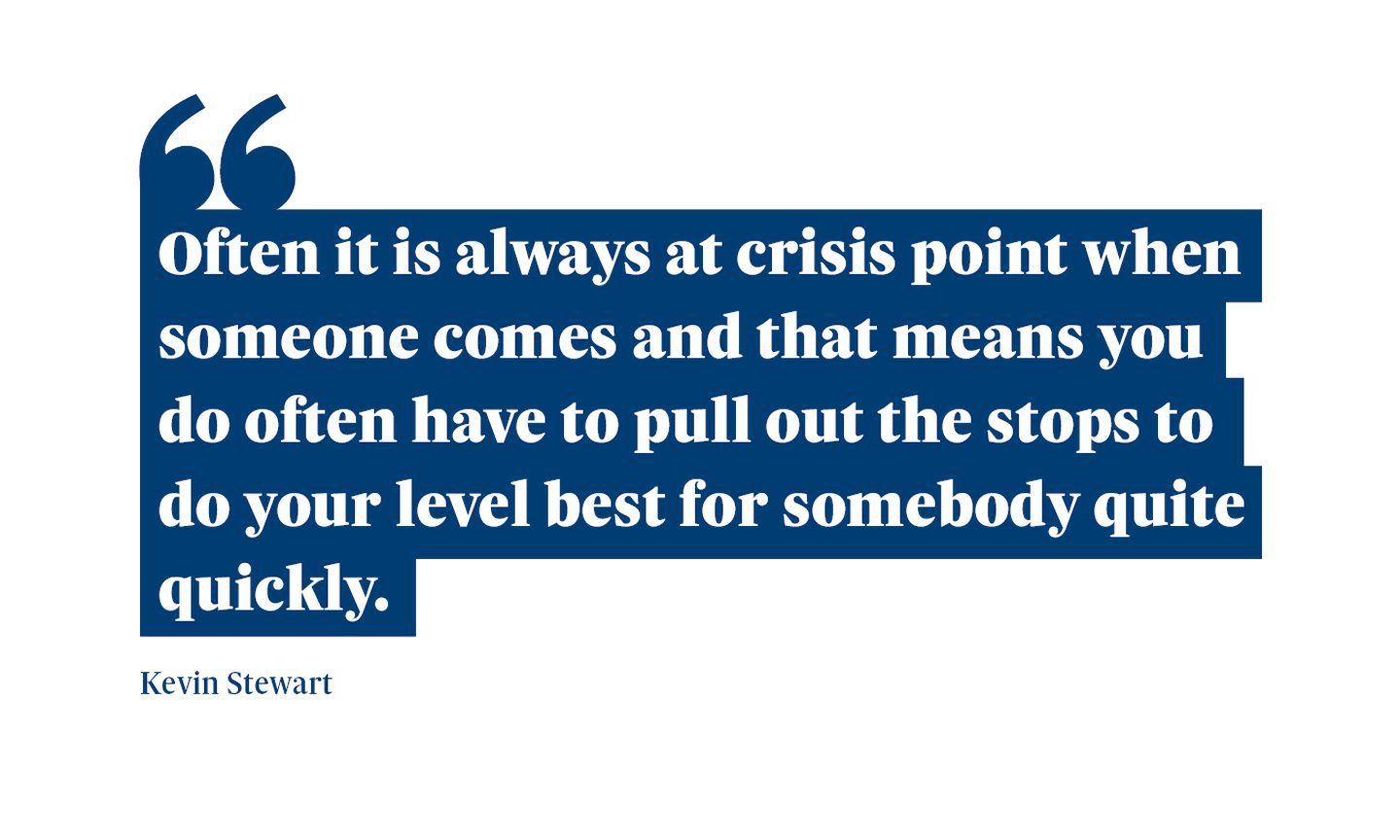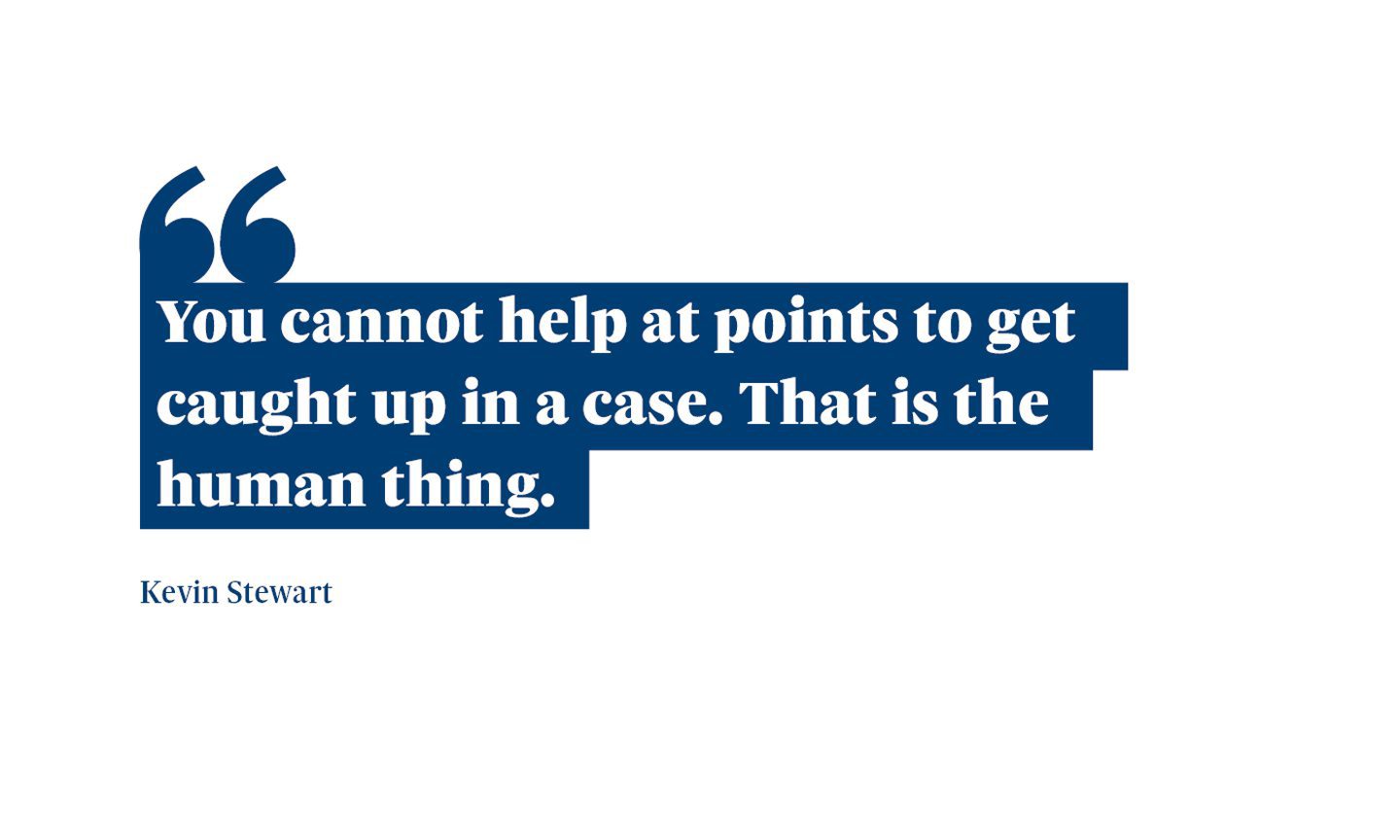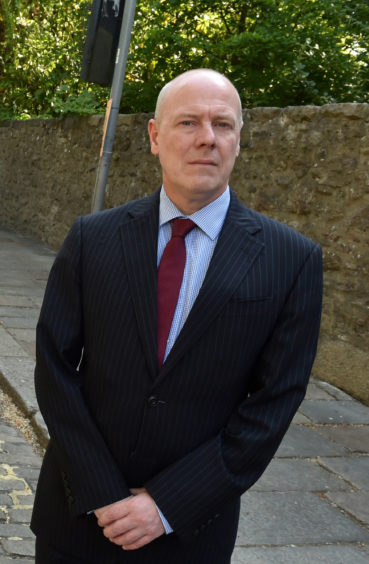
It often comes when they are at crisis point: The desperate call for help from a domestic abuse victim that triggers a wave of frantic action.
The plea for help comes during a brief window of time as the perpetrator is sleeping or when the victim has escaped the lion’s den for a short walk.
Victims often do not know where to turn when trying to tackle to myriad problems they would face if they flee – and so sometimes turn to elected members for assistance.
One of those is stalwart MSP Kevin Stewart, who has been involved in north-east politics since 1999 and has campaigned on domestic abuse issues throughout that time.
He was an elected member on Aberdeen City Council for 13 years – four as deputy leader – and has been an MSP for Aberdeen Central since 2011.
It is not uncommon for Mr Stewart’s team of staff at the constituency’s John Street office in Aberdeen to get 6,000 enquiries a month – and dozens of those come from domestic abuse victims urgently needing a way out.
That can often leave Mr Stewart and his colleagues facing a race against the clock, whether it be to help the victim – and sometimes their children – stay off the streets, or to ensure they don’t go hungry after escaping turmoil.

Mr Stewart said, in his experience, victims try everything they possibly can to solve their problems themselves – without realising the odds are stacked against them.
He said: “That is human nature in some regards where people often try to resolve very difficult issues themselves even though it’s unlikely they will be able to do that.
“Often it is always at crisis point when someone comes and that means you do often have to pull out the stops to do your level best for somebody quite quickly.
“That is often quite difficult. You just have to try to feel your way through and try and find the right solution for people.”
Every scenario Mr Stewart’s team tackles is unique, though requests for assistance with housing issues are common.
Mr Stewart said: “Every single situation can be different. Elected politicians normally find they get cases when there are situations around about housing and when folk are attempting to flee the situations they find themselves in.
“I’m very lucky in terms of staff that I have in my office who are very experienced in all kinds of casework but, beyond that, they have the empathy to deal with situations which are often very very grim indeed.”
Is Universal Credit flawed?
A major problem in combating domestic abuse is that it is an ‘invisible killer’ – a crime that is not always restricted to wounds and bruises, but also mental scarring.
In April last year the Scottish Government introduced a new law recognising coercion – persuading a victim to do something by force or threats – as a crime.
But Mr Stewart believes other regulations are helping the abusers, not the victims.
He said: “It’s not just the physical abuse that many folk think about, it is about those coercive behaviours we have to tackle as well.
“That’s why I’m proud that last year we saw new legislation covering all of that coming into play.”
Singling out the UK Government for criticism, Mr Stewart added: “Universal credit is completely and utterly flawed.
“Universal credit was actually designed in such a way that it was quite Victorian in its outlook: One payment to one family, and to one person in that family. That in itself allows a level of control-freakery, which is quite incredible in some circumstances.
“That allows that financial control and that coercive controlling behaviour, which can often have real impacts on victims and their families.
“There has been a lot of lobbying with the UK Government to try to get them to understand why those moves were so wrong.”
For many cases that come through Mr Stewart’s door, his staff put those seeking assistance in touch with support groups, with which his team have forged close ties over the years.
Mr Stewart said: “(My staff) have the knowledge to signpost people to the services, where they don’t have the ability to help themselves or where they recognise that somebody is maybe not opening up to them around about all that is going on.
“We are so lucky in the north-east to have the likes of Grampian Women’s Aid and (Domestic Abuse) 24-hour helpline.
“That is absolutely essential in terms of helping people out because often these calls can only be made when folks are out of the house, when perpetrators are out of the house or sleeping or whatever that may be.
“Having talked to the folks who run the domestic abuse service at Aberdeen Cyrenians and spent a very short amount of time in the recent past speaking to them, their work is absolutely vital.
“One of the things where there is a real difficulty in terms of dealing with domestic abuse situations is where some folk have no recourse to public funds and don’t have the ability to flee.
“That is something that has been highlighted again and again by Aberdeen Cyrenians themselves.
“At one point, they actually used their own resources to house someone.
“This is again another major failing in terms of protection because of the UK Government’s daft social security and immigration policies which are indeed keeping some people in very dangerous situations because they have nowhere else to go and they don’t have the ability to access benefits to flee what are often very, very tragic circumstances.”

Now in his 21st year as a political representative and having served as the Scottish local government, housing and planning minister for almost four years, Mr Stewart said dealing with such harrowing cases does take its toll.
Talking about domestic abuse
He said: “You cannot help at points to get caught up in a case. That is the human thing.
“Twenty-plus years ago when I first became a councillor and began to get difficult cases quite quickly – I found it very difficult at points to keep your absolutely professional side, which you’re supposed to have.
“I found it very difficult to detach from certain cases. I got very angry at points where there were no solutions to deal with the problems folk were facing.
“I’m much more experienced now – that’s not to say I am detached in any way shape or form from casework – but where initially it was new to me and was difficult to detach yourself (now it is less so).”
He added: “I used to spend as much time in some cases worrying about cases than I did actually get on with other things which I had to deal with in life.
“You have to recognise at a point where your constant worry about something is actually not helping.
“That is very difficult for you as you move forward because we are all human.”
But there are success stories and some victims manage to make for themselves a better life.
Mr Stewart said: ““My office put a huge amount of effort to engage to ensure the right outcome happens for people.
“Regularly we get ‘thank you’ notes, cards. You get the odd bottle as well. That does feel good. Nobody has to go out of their way to do that. There are many, many good people out there who recognise the graft that have gone in.
“Still to this day there are folks who I’ve helped in the past who I still keep in touch with just to see if they are okay.
“I still get Facebook messages from folk or you get the odd email from time to time. You see people in the street and you ask them what the situation is.”
He added: “We have probably the most advanced legislation in Europe around about dealing with domestic abuse
Beyond that, as we move forward, the Scottish Government is already introducing banning orders (preventing offenders visiting certain properties) to deal with perpetrators and strengthening that area as well.
“I think we’ve gotten a lot better in the fact that we now talk about (domestic abuse) much more than we have ever done.”

